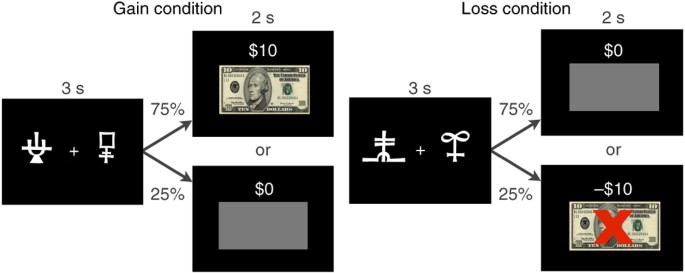- Select a language for the TTS:
- UK English Female
- UK English Male
- US English Female
- US English Male
- Australian Female
- Australian Male
- Language selected: (auto detect) - EN
Play all audios:
Who's right? Jeremy Hunt for threatening to impose weekend working on NHS consultants? Or the outraged consultants who accuse politicians of "lazy caricatures" about their
hard-pressed professional lives? As is so often the case, they're both right. But unless the health secretary's Thursday speech has been misleadingly briefed in advance (it does
happen), Hunt is more right than wrong. I recently paid a flying outpatient visit to a big local hospital on a bank holiday Monday and boy, was it quiet! I know, I know. Most organisations
go quiet at the weekend, in both public and private sectors – including national newspapers and the newsrooms at the BBC – though the retail and entertainment sectors steadily expand their
activities to meet demand from people "going quiet" in their own working lives. But healthcare is surely different. People get ill and die at the weekend in the same way that
houses catch fire or get burgled. Society can organise its peaks and troughs of activity to meet the human need for proper time off – that's important too – but it is far easier in the
schools or legal system than it is in medicine. Even in healthcare much can and is done to allow staff proper weekend breaks. "Elective surgery" can be scheduled to fit in with
staffing. Few people want to visit their GP on Sunday morning. It is even quiet in A&E where staff may still be mopping up after the chaos of Saturday night mayhem. But the balance is
not right and in the eternal search for greater efficiency in the £100bn NHS budget Hunt is entitled to look at consultant working habits, as he has done those of the GP sector, the
Cinderella service which acts as gatekeeper to the grandees at the local hospital. There's also an awful lot of expensive equipment in those hospitals, not to mention staff expertise of
all sorts, which should be worked for more productive hours than it currently is. Other countries do it better. So why can't we? Hunt's speech will repeat the claim that 6,000
patients die needlessly because of inadequate weekend cover. It may not be quite accurate, but we all know there's a problem. Mortality rates on Sunday admissions are 16% higher,
according to research published by the Journal of the Royal Society of Medicine. So, no problem then? Hunt has given the British Medical Association (BMA) six weeks to talk – it's
nearly August, another downtime period, too – or he will impose his changes to working practices, which will also cull the overtime rates which consultants' weekend work attracts. He
can't just do it, can he ? He probably can, you know. In Andy Cowper's Health Policy Insight column there's an amusing story about the health secretary "doing a
Johnson" in exceptional circumstances. It recalls how, during the Mid Staffs crisis, an official tried to tell Alan Johnson (then in the job) that he lacked the powers to act. I've
spoken to the PM, I'm responsible, stuff what the law says, was the drift of mild-mannered Johnson's reply. Sometimes that's the right answer. In the case of NHS consultant
contracts there's a historic point that (as with GP contracts and out-of-hours working) the Blair government made some bad mistakes in 2003-4, which have had to be rectified over time.
That is not to say that the BMA, one of Britain's most powerful surviving trade unions, does not have a point too. In her free market zeal, Margaret Thatcher started the habit of
attacking middle-class vested interests in the 1980s. She battered teachers and local government professionals, doctors and nurses along with hospital porter bashing. Thatcher went to the
favours bank and used Rupert Murdoch as a battering ram to hammer the commie, pinko BBC. She even appointed a Scots lawyer, Lord Mackay, as lord chancellor so he could batter her own trade,
the English bar. The City was subjected to the "big bang". Some good was done, all sorts of things were shaken up. But also lots of harm. Many people lost their jobs or their job
security. Professionals adapted and survived, even thrived. The fat cats got fatter, the thin cats suffered. A lot of rackets thrived, including the casino side of investment banking for
which we have all paid a heavy price. Also what it pains me to call the ambulance-chasing branch of the legal trade, including some dodgy human rights practices. But the good guys were hurt.
Check out solicitor, John Briant's heart-breaking Guardian plea for his legal aid clients here. The cost to society's vulnerable from the hollowing-out of important professions,
jobs already under pressure from voracious markets and the tech revolution, is considerable. The consultants are entitled (so are GPs) to ask Hunt two relevant questions. One is where the
budget for busier weekend working will come from. It cannot all come from savings on their overtime payments. A consultant cannot do brain surgery without a large team at his or her elbow,
even on a Saturday. The second related question is: where do the skilled staff come from? The more pressure politicians put on consultants (and for less money), the more some may be tempted
to retire to the golf course, or emigrate to a cushier working environment. There is already a rising shortage of key staff in some branches of the medical profession, those which are less
fashionable, less lucrative or more exhausting. GPs are retiring in larger numbers and retiring early. The rise of doctors who choose to work part-time while managing young families adds to
the pressure. Tighter regulation to prevent more Mid Staffs disasters add to that pressure. Lawyers and teachers can tell similar stories: more pressure, less money to sustain an income at
the less glamorous end of their professions, more Ofsteds, more fat-cat rewards for "superheads", town hall CEOs, not to mention senior NHS managers. All this when pay freezes
persist for the lower paid. Ministers are right to challenge entrenched vested interests and doubtful working practices, especially to galvanise the NHS into a more 21st-century mindset
where it can adapt and thrive in ways other countries' healthcare systems do. But there is a balance to be struck. Glib union bashing in pursuit of headlines is no more acceptable at
the BMA than at Unite or the BBC. Show us you are better than than, Mr Hunt.






